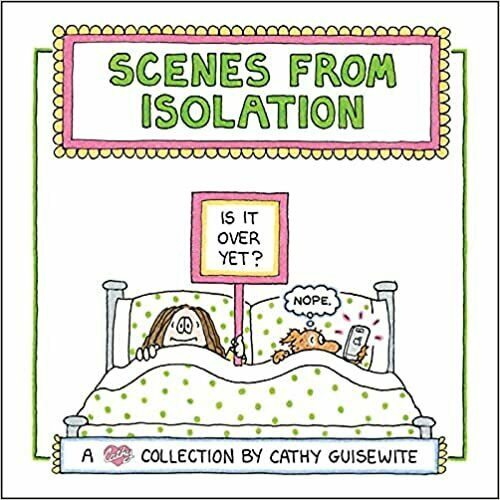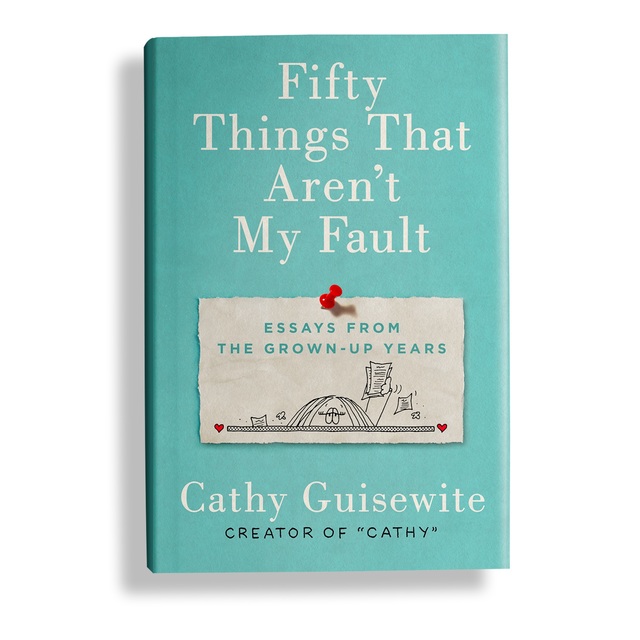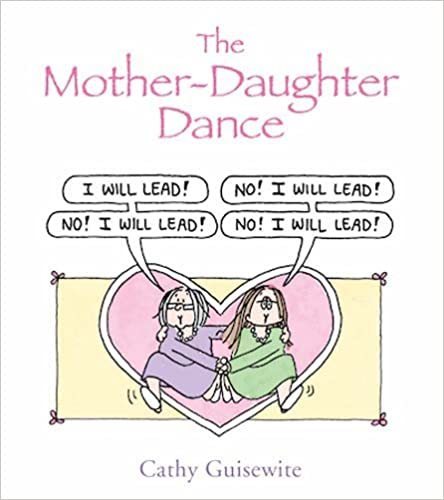Launch Date Announced 🚀 The brand-new GoComics will be unveiled April 1! (No fooling). See more information here. Subscribers, check your
email for more details.
Cathy Classics by Cathy Guisewite for August 23, 2009
Transcript:
Cathy: I'd like a little taste of the cookie dough! Charlene: I'd like a taste of the mint chocolate chip! Cathy: Also a taste of the butter pecan! Charlene: And a taste of the strawberry cheesecake! Cathy: And a taste of the rocky road! Charlene: And a taste of the jamocha almond fudge! Cathy: And a taste of the triple cherry chunk. Charlene: And a taste of the brownie ripple! Cathy and Charlene: And now I will commit to a four-ounce, sugar-free, healthy life-style, dessert-like substance! Caption: The time-honored rules of Summer: Cathy: Sample calories don't count! Charlene: No one understands ice cream like another female.





saturntv over 15 years ago
Has anyone not tried to worm around dieting like that? I know me, my sister, and my mother have all done this exact rule.
alondra over 15 years ago
I didn’t think they’d give you a sample of everything. Then you leave without having bought anything. You shouldn’t take advantage like that.
mcveinot over 15 years ago
Oh they bought something, a teeny tiny “healthy” treat. They may be able to fool themselves but they cannot fool the pants.
kfaatz925 over 15 years ago
I don’t know - I’m starting to embrace the philosophy that life’s too short, and if I want mint chocolate chip, that’s what I’m getting. :)
LibrarianInTraining over 15 years ago
I just got through eating a donut. The trick is to eat a little bit all day long. I told my brother in law my eating habits. He’s dropped 60 pounds already by eating like me. Only problem is when I go to a restaurant. I usually wind up taking half of it home.
kaymargogo over 15 years ago
Taking half home is a GOOD thing! Then one may nibble on the rest as one pleases, in privacy and comfort.
By the way, for my own edification (since you seem to be the resident grammar expert), is “like me” or “as I do” more preferred? Either way, I wish my own pronoun use were more correct than it sometimes is. I enjoyed reading your corrections yesterday–thanks!
JosePeterson over 15 years ago
i suddenly am in the mood for ice cream
LibrarianInTraining over 15 years ago
“As I do” is preferred. “Like me” is never correct. But as I said yesterday, I don’t really care what my grammar looks like in the everyday. I’m not a grammar Nazi.
I just thought it was funny yesterday because that guy was ranting about correct grammar, and using poor grammar himself. It was humorously ironic.
But, yes, for anyone curious, I did use improper grammar in my comment. I should have said “eating like I do.”
And taking half of it home isn’t a good thing when you’re out to dinner with a large party, and everyone’s staring at you like you’re wasting food by not finishing it all. My father-in-law routinely berates me for what he calls “playing with my food” when all I’m really doing is waiting for the server to come around so can ask for a box.
LibrarianInTraining over 15 years ago
And, as a tip on the pronoun usage, when dealing with two pronouns in a prepositional phrase, just use the prepositional phrase for each pronoun.
Example:
Mother gave the ice cream to Jess. Mother gave the ice cream to me.
Mother gave the ice cream to Jess and me.
(Or “me and Jess” While either version is grammatically correct, it’s considered better etiquette to put the other person before yourself.)
Saucy1121 Premium Member over 15 years ago
@Susan001: probably because Cathy and her friend have been there.
RinaFarina over 15 years ago
@LibrarianInTrainin, you have just lost your credibility with me. Of course “like me” can be correct - if used correctly. For example, “He looks like me.” What do you want instead, “He looks as me.”?
And “like I do” is the one that can never be right! You have it backwards!
Remember, “Do like I do, not like I say!” ;>)
LibrarianInTraining over 15 years ago
Actually, the correct phrase is “He looks a lot like I do.” It is never “like me”.
Re-check your grammar book. After the word “like” you are initiating a dependent clause as a part of a simile. The subject of the dependent clause must always be a subjective pronoun.
Example using a noun and pronoun (so you can see the comparison):
He runs like a deer runs.
He runs like I run.
NOT He runs like me run.
The subject of the clause always infers a verb will follow. We’ve just gotten lazy and left off the verb. In some cases it is acceptable. (He runs like a deer.) In other cases it just doesn’t sound right. (He runs like I.) But correct is correct, no matter how stupid it sounds.
But it’s an easy mistake to make because so many people say “like me”.
Objective pronouns like “me” and “us” only come in object phrases like prepositional phrases. (To me, above me, with me, etc.)
And to answer your other question the phrase is neither “He looks like me” nor is it “He looks as me” as all you have done is change the simile from “like” to “as” without changing the pronoun.
It doesn’t matter if you use “like” or “as”. The problem is your pronoun and its verb. To make it sound better, muster up an extra half breath and put the verb back in.
“He looks like I do.”
Ray_C over 15 years ago
LibrarianInTraining: Just between you and I, your grammar is totally sound. (Yes, that “between you and I” thing is one of my pet peeves also. Almost as bad as “More importantly.”) I, too, enjoyed yesterday’s tour de force immensely. Feel free to “Grammar Nazi” me anytime you catch me messing up. I’d appreciate it, and get a good chuckle, too; most likely. (Not sure about the semicolon there.)
LibrarianInTraining over 15 years ago
The semicolon should be a comma, as semicolons have only two uses:
1) Separating independent clauses devoid of conjunctions.
2) Separating items already using commas.
Example: Her favorite players are Steve Young, a quarterback; Jason Buck, a defensive end; and Ty Detmer, another quarterback.
There are a few less frequently used rules that allow for semicolons. One usage is listing three or more items tacked onto the end of a complete sentence preceded by a connector word such as “that is,” “for example,” or “for instance,”. You may use either a comma or a semicolon for this however.
Another rule would allow you to use a semicolon to connect two otherwise complete sentences even if they are connected by a conjunction, if the first sentence already has one or more commas in it. It’s optional, but may on occasion make the sentence easier to read and comprehend.
I have a tendency to avoid semicolons as much as possible, as I’m often afraid of abusing them. My biggest vice is comma splices. Once I get into an idea, I run with it. My English professor was particularly persnickety about comma splices, and I almost always was caught using them.
LibrarianInTraining over 15 years ago
I also failed to notice until now that RinaFarina spelled my username incorrectly. I’m ashamed of myself for not catching it sooner, though I could take the cheater’s way out and blame it on the fact that my allergies have me sneezing so much that I’m not reading near as well as I usually do.
(The interchanging of “good” and “well” is my pet peeve. My English teacher drilled into my head long ago ” ‘Good’ is an adjective; ‘well’ is an adverb!”)
kab2rb over 15 years ago
Hello Librarianin where were you when I was in school. Most teachers do not go in same detail as you. A lot of children need better English teachers. I definantly could have used you to improve my speach. I have been out of school for a long time. I had to go to WATC to catch up, but I learned in just a short time more from you. Thank you Most icecream places for samples do not give big samples.
LibrarianInTraining over 15 years ago
Anytime. I was very blessed with an excellent English teacher in high school. She taught English all four of my high school years, and was very thorough. She even had silly little mnemonic phrases to help us remember things. Drills like “The subject and verb can never, ever be in a prepositional phrase.”
“Each, either, neither, anything with “one”, and anything with “body” are always singular” referring to subject/verb agreement. Anything with “one” or “body” was her way of saying “anyone, everyone, someone, nobody, anybody, everybody, somebody” etc. All of those pronouns would always have a singular verb to follow it, regardless of the prepositional phrase,
Example:
Each of the boys has had his breakfast. Regardless of the fact that there is more than one boy, because “each” is the actual subject, the verb automatically has to be singular.
The only pronoun subjects that are contingent on the prepositional phrase that follow them are, as my teacher used to call, SANAM (Pronounced Say-name)
It stands for “some, any, none, all, most”.
I loved my teacher very much (though I have beaten her in Scrabble every time we’ve played) and it was her teaching that helped me ace my college English class without ever having to take the book out of the wrapper. I sold it back to the school bookstore for the full purchase price.
I’m here any time you have a grammar related question. I used to want to be a teacher (I was even a teacher’s aide for two years) but I gave up on the idea when, as a teacher’s aide, I realized that not many students were interested in learning anything. So I figured that if I became a librarian, then I would be doing essentially the same work, promoting education and literacy, and I would be serving those who truly want to learn. If a person doesn’t want to learn, the last place they would go is a library.
Still, I will be teaching in some respect, because I plan on homeschooling my children.
Feel free to ask me any time you feel interested. I’m glad you like to learn.
Ray_C over 15 years ago
LibrarianInTraining: Regarding “well” as being an adverb, I’m sticking my neck out here, but I think sometimes it really is an adjective. “Are you well?” Thus, to “feel well” could mean not to be ill as well as to have a good sense of touch. Just checked Webster’s Ninth Collegiate Dictionary. It lists seven definitions of well as an adjective. Whattya think? Thanks for the semicolon tips. I do remember being told to use it after a conjunction connecting independent clauses when one of them contains a comma. I do that, but don’t know of anyone else who does. Incidentally, my daughter-in-law started home schooling her oldest (eldest?) last year, and is loving it. She has gathered tons of information. She was home-schooled also.
LibrarianInTraining over 15 years ago
Ray C, you are correct. In the case of “‘good’ is an adjective, ‘well’ is an adverb” I was talking about how people “do” a certain thing, as opposed to how they are feeling.
Ask any teenager about his favorite musician, and he’ll likely say,
Yeah, he plays real good.
As opposed to
Yes, he plays very well.
My husband was homeschooled. He liked his curriculum so much that we’ve decided to use it on our children. It’s a bit easier on them because instead of sending entire books to the child to work on all year, they send a 30 page booklet in each subject, All you have to do is 5 pages per subject per day. The children can learn at their own pace.
Hence the reason the curriculum is named PACES.
It stimulates them without overwhelming them. I’ve already checked it out, and I’m very pleased.
Good for your daughter. I’ve always felt like there’s no education quite so deep as one given by a teacher who loves to learn as well as teach.
Iwa Iniki over 15 years ago
I don’t even like ice cream. I like frozen non-fat vanilla yogurt.